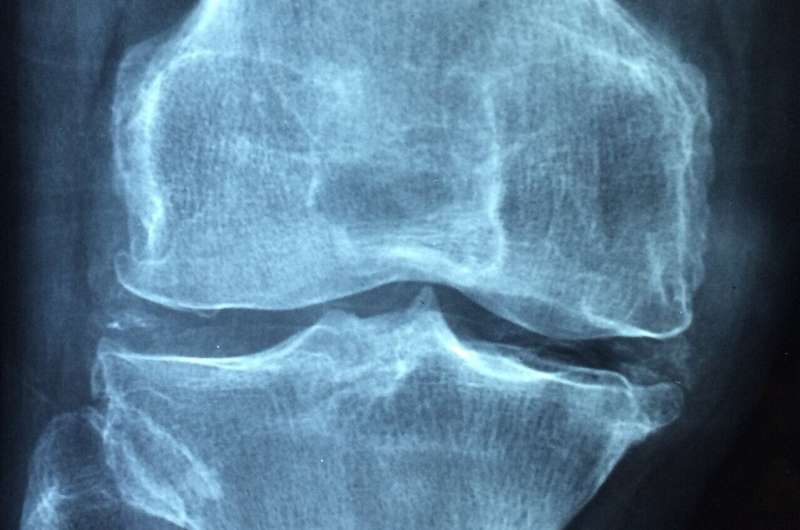Researchers say prescribing opioids for pain relief after knee surgery is unnecessary

A new study by Henry Ford Health System published in Arthroscopy: The Journal of Arthroscopic and Related Surgery may signal a first step toward eliminating the use of opioids to relieve pain after knee surgery.
A novel multimodal pain management protocol developed at Henry Ford can bring about immediate pain relief for knee injury patients without using powerful opioids like morphine, codeine, and oxycodone.
"Orthopedic surgeons can now perform meniscal knee surgery without the need for prescribing opioids whatsoever," said Toufic Jildeh, M.D., chief resident at Henry Ford's Department of Orthopaedic Surgery and the study's lead researcher. "We believe this non-opioid approach can be replicated for other types of orthopedic surgeries."
In what has been labeled as a serious national crisis by the U.S. Department of Health, nearly 10 million Americans misused prescription pain relievers in 2019 and more than 50 thousand people died as a result of opioid-related overdoses. Dr. Jildeh points to the study's findings as an important first step in the effort to reduce and eliminate the use of addictive opioids to manage pain following other types of surgeries as well.
"When patients learned they can undergo surgery without the need to take opioids to manage their pain, they were excited," said Dr. Jildeh.
Dr. Jildeh said the reliance on prescribing non-opioids for severe pain relief is part of the health system's broader initiative launched in 2016 to reduce the number of opioid pills and patches. In 2019, the State of Michigan enacted new laws regulating the prescribing and dispensing of controlled substances including opioid painkillers. From 1999 to 2016, Michigan saw a 17% increase in fatal prescription drug and opioid overdoses.
Studies have shown that patients can become addicted to their opioid pain control medications after various types of surgery including meniscus knee surgery. "Our non-opioid approach is our response to advancing better practices for pain management for our patients," Dr. Jildeh said.
From the study's 61 patients, 30 received opioids for pain control and 31 received a non-opioid regimen such as anti-inflammatories, acetaminophen and muscle relaxers. Researchers reported pain scores from the non-opioid group were equivalent to those of the opioid group and there were no significant differences in side effects between the two groups.
"Patients were given the option to ask for opioids if they felt as if their pain was not in control, and we reported that none of the patients in our nonopioid cohort asked for opioids," said Dr. Jildeh.
The non-opioid approach has become the standard of care for managing pain after meniscus surgery for many surgeons at Henry Ford.
More information: Toufic R. Jildeh et al, Multimodal Nonopioid Pain Protocol Provides Equivalent Pain Versus Opioid Control Following Meniscus Surgery: A Prospective Randomized Controlled Trial, Arthroscopy: The Journal of Arthroscopic & Related Surgery (2021). DOI: 10.1016/j.arthro.2021.02.043


















